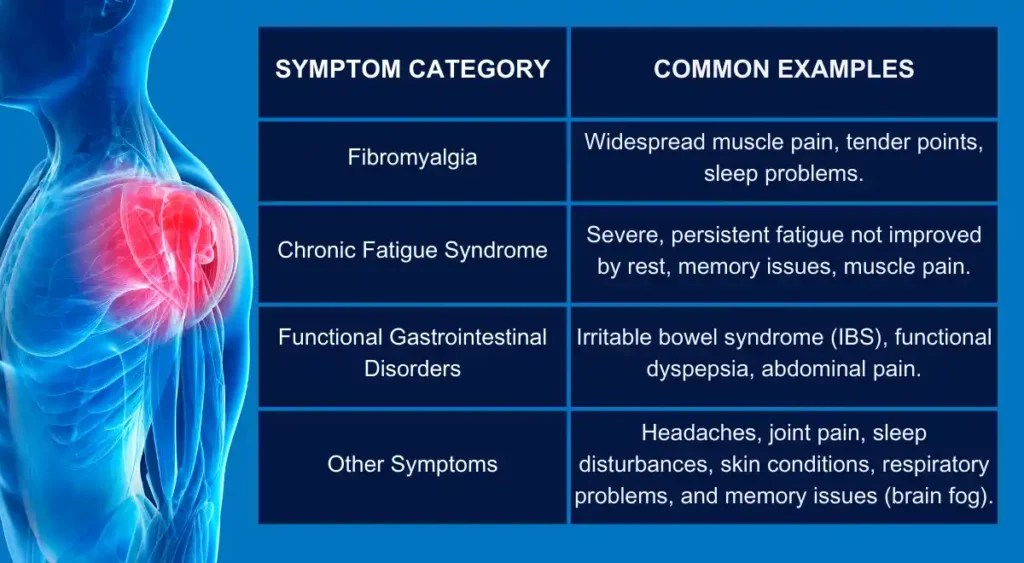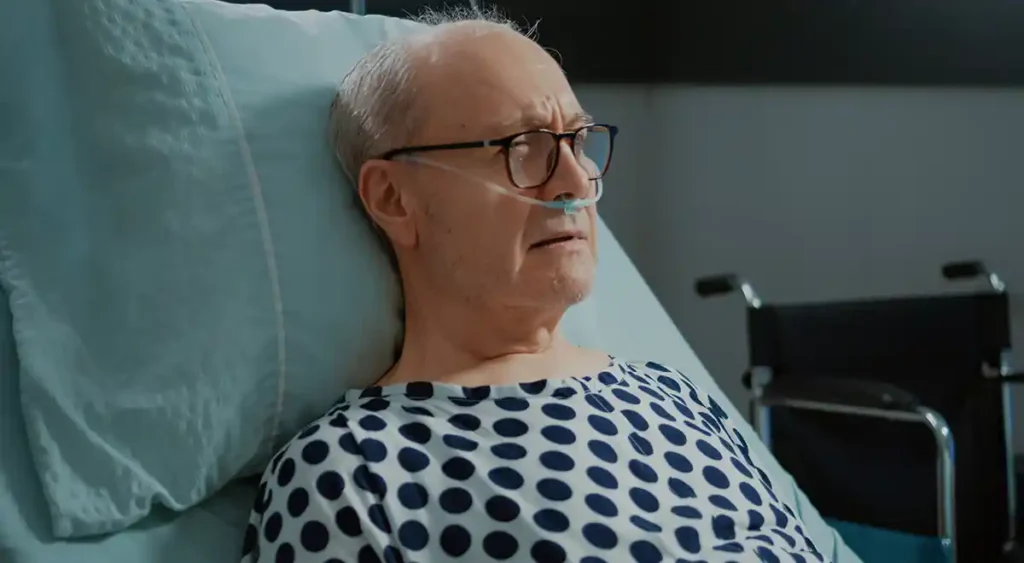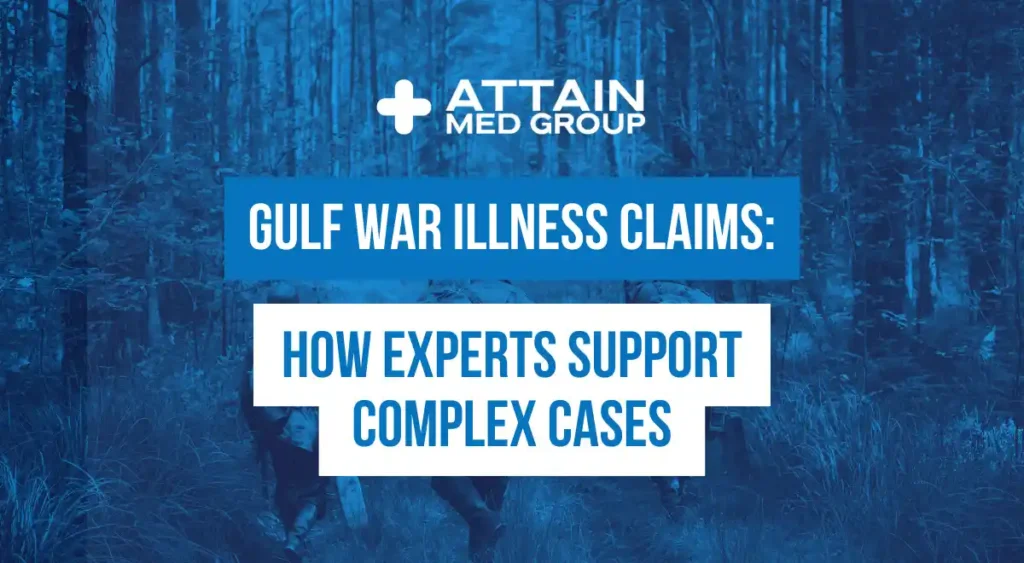Gulf War Illness claims are tricky. Learn how medical experts build evidence to support these complex cases. If you are a war veteran who served in the Gulf War and came home with chronic health problems, you are not imagining things and you are not alone. Getting the VA to recognize your condition, however, can feel like an uphill battle.
You know something is wrong. The constant fatigue, the joint pain, the brain fog—these symptoms were not present before your Gulf War service. But when you try to explain it, the dots do not seem to connect for the VA, leaving you frustrated.

Why Are Gulf War Illness Claims So Challenging?
First, let’s get one thing straight: Gulf War Illness (GWI) is real. The medical community and the VA recognize it as a legitimate health condition affecting veterans of the 1990-1991 Persian Gulf War. Recognizing it exists and approving disability benefits are two very different things.
One of the biggest hurdles is that Gulf War Syndrome is not a single disease. It is a cluster of medically unexplained chronic symptoms, a chronic multisymptom illness that can vary wildly from one veteran to another. One person might suffer from severe fibromyalgia-like pain, while another deployed Gulf War veteran deals with debilitating cognitive issues.
There is no single blood test or X-ray that can definitively say, “Yes, you have Gulf War Illness.” This makes it much harder to prove than a shrapnel wound or a diagnosed mental health condition. This situation leaves you feeling like you have to prove an invisible war illness, which is incredibly frustrating for many war veterans.
The VA does have rules about presumptive conditions for Gulf War veterans. This means if you had war service in the Southwest Asia theater of operations and have certain chronic symptoms, the VA should assume they have a service connection. But “should” is a big word, and you still have to build a strong case that your symptoms fit the VA’s definition of an undiagnosed illness or chronic multisymptom illness.
The Crucial Role of Medical Experts in Your GWI Claim
Your primary care provider or even your VA doctor might be great at managing your symptoms. They can prescribe medication for your pain or give you strategies for dealing with fatigue syndrome. But they often do not have the specific training or the time to connect your current health concerns back to your service two or three decades ago.
This is where a medical expert comes in. Think of them as a medical detective who specializes in your type of case and understands the specifics of disability claims. Their job is not to treat you but to analyze all the evidence and give a professional medical opinion that connects the dots for the VA.
For a GWI claim, their expertise is invaluable because they understand the unique nature of this illness and the types of sufficient evidence the VA needs to see. They can turn your pile of medical records and service documents into a clear, compelling story that a VA rater can understand and approve.
How Medical Experts Build Evidence for Your Claim
So, what does a medical expert actually do? They do not just write a quick letter saying they believe you. They build a powerful case brick by brick, using medical science and your own history.

A Deep Dive Into Your Service Records
The first thing a good expert does is go through your military service records with a fine-toothed comb. They are looking for more than just your dates of service in places like Saudi Arabia. They are searching for evidence of potential exposures during your time in the Southwest Asia theater.
Were you near an area where chemical weapons were destroyed, like the Khamisiyah pit? This event potentially exposed thousands of service members to low levels of sarin and cyclosarin nerve agents. An expert knows to look for this in your records and how it may be linked to future health problems like brain cancer.
They also investigate other common exposures. They will look for evidence related to smoke from oil well fires set during Desert Storm, pesticides used to control insects, and even the preventative medication, Pyridostigmine Bromide, given to troops. Exposure to depleted uranium from friendly fire incidents is another area of investigation that could have long-term health effects.
Thoroughly Documenting Every Symptom
Just saying “I feel tired all the time” is not enough for a VA disability claim. An expert helps translate your everyday experiences into precise medical language. They document the what, when, where, and how of each of your symptoms, building a comprehensive picture of your health condition.
GWI can cause a wide array of problems, which the VA often groups into three main categories of chronic multisymptom illness. An expert will detail the severity of these symptoms and how they impact your life. This helps paint a clear picture of how GWI impacts your ability to live a normal life and earn a living.

The Power of a Solid Medical Nexus Letter
This is perhaps the most important piece of evidence a medical expert can provide for your disability benefits claim. A “nexus letter” is a written medical opinion that draws a clear line between your current medical condition and an event or exposure during your military service. This letter is the foundation of establishing a service connection.
The VA operates on a standard called “at least as likely as not.” This means the evidence only needs to suggest there is a 50% chance or greater that your service caused your health conditions. An expert crafts their letter to meet this specific legal standard, using precise language the VA understands.
A strong nexus letter is much more than a simple statement. It will include a review of your complete medical history, both before and after service. It will cite your service records, specific exposures from your time as a Gulf veteran, and your current diagnoses from health care providers.
Using Medical Literature and Research to Back It Up
You might feel like you are the only Gulf War era veteran who developed these symptoms after serving, but you are not. There is a large body of scientific research on Gulf War Illness from around the world, including studies from the United Kingdom. Medical experts who work with war veterans’ claims know this research inside and out.
They can cite studies published in respected medical journals that show a statistical link between service in the Gulf and specific health outcomes. For example, a major health survey or government committee concluded that there is an increased risk for chronic, multi-symptom illness among deployed Gulf War veterans compared to non-deployed service members from the same war era.
When an expert includes these references in their report, it is not just their opinion anymore. They are showing the VA that the broader medical and scientific community supports the link. This makes your claim much harder for the VA to deny and shows that sufficient evidence exists to support your case.
Common Sticking Points and How an Expert Helps
Many Gulf veterans see their GWI claims denied, often for the same few reasons. A medical expert who focuses on veteran claims understands these pitfalls and helps you sidestep them from the start. They can be instrumental in helping veterans receive the benefits they deserve.
One common issue is describing your symptoms in a way that does not trigger the VA’s presumptive criteria. You might talk about “stomach problems,” but an expert will document it with the specific signs and symptoms of a functional gastrointestinal disorder, which is a presumptive condition. This small change in wording can make a huge difference.
Another big problem is failing to establish that the symptoms appeared to a certain degree within a specific timeframe. The rules for GWI state that the illness must have appeared during active duty in the Southwest Asia theater of operations or by December 31, 2026, and be at least 10 percent disabling. An expert will go through your records to pinpoint the earliest evidence of your symptoms, building a timeline that satisfies the VA’s requirements.
Finally, many veterans rely solely on their VA examinations. While some C&P (Compensation & Pension) examiners are great, others may not have a deep understanding of Gulf War Illness or associated health issues like birth defects in offspring or infectious diseases from the region. An independent medical opinion from your own expert acts as a powerful counterbalance, giving the VA another credible opinion to consider.
You Do Not Have to Fight This Alone
Dealing with a chronic illness is hard enough. Battling a massive government agency for your VA disability at the same time can feel downright impossible. The paperwork, the denials, the feeling of not being heard—it can take a serious toll on your mental health.
But you do not have to walk this path on your own. You served your country, and you deserve to have your voice heard and your health condition recognized. Getting the right kind of help is not a sign of weakness; it is a smart strategy for success.
Working with professionals who understand this specific battlefield can change the outcome of your claim. They can help you gather the right evidence, present it in the strongest possible way, and give you the best chance of getting the benefits you earned through your honorable war service. Their fight becomes your fight.

Conclusion
There is no sugarcoating it; Gulf War Illness claims are tricky. Learn how medical experts build evidence to support these complex cases. The undefined nature of the war syndrome and the VA’s bureaucratic process create a difficult environment for Gulf War era veterans seeking the health care and benefits they are owed.
These challenges are not insurmountable. The solution is to build a case so strong and well-documented that it cannot be ignored. A qualified medical expert is your best ally in this process.
They use your service records, medical history, and scientific research to forge the undeniable link between your time in the Persian Gulf and your health today. This expert support can make all the difference in winning your claim.

